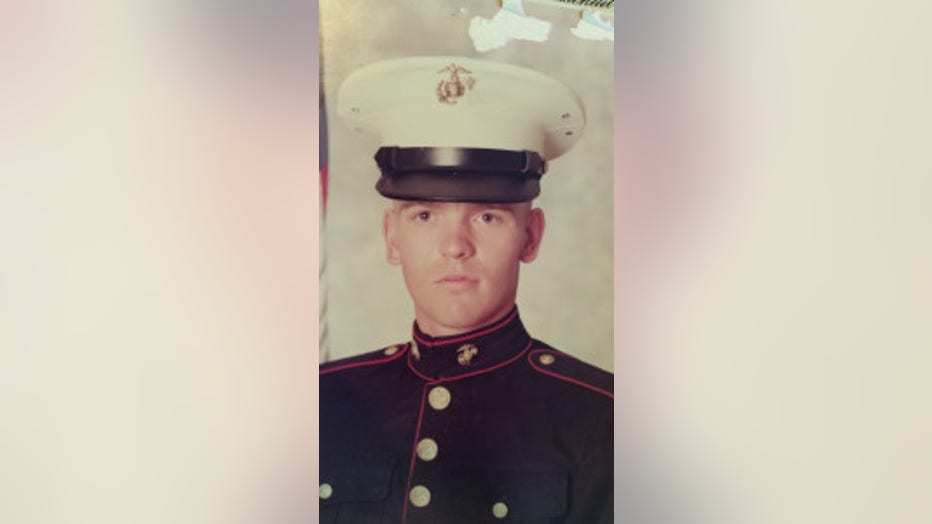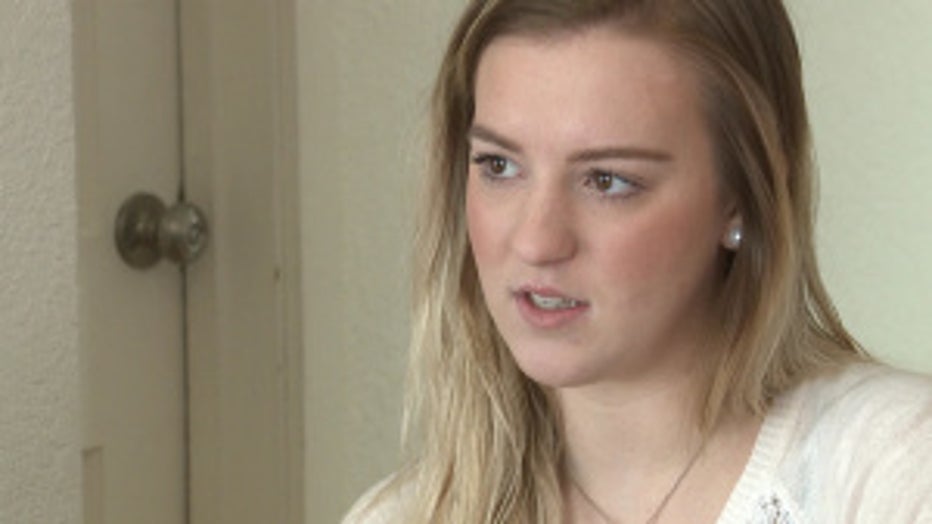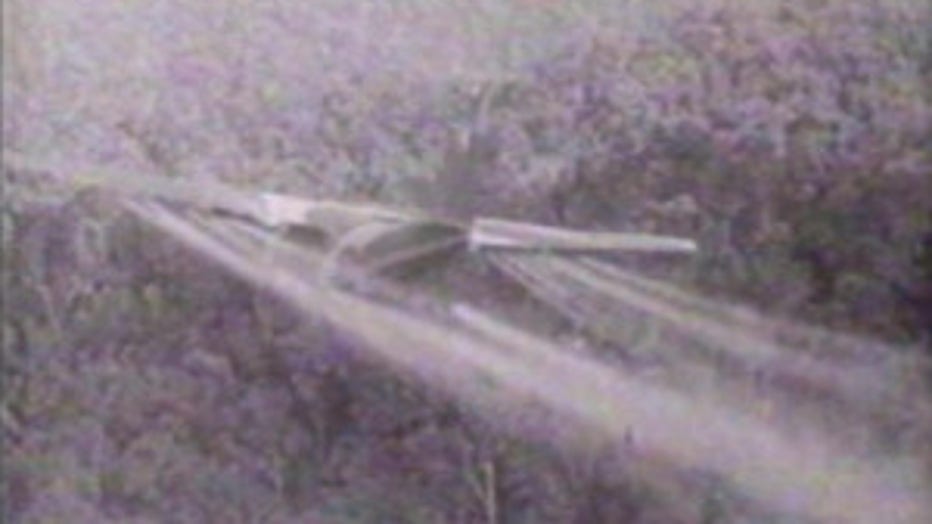Family of Vietnam vet exposed to Agent Orange still fighting for benefits 11 years after his death
MILWAUKEE (WITI) -- You know the old saying, 'You can't fight city hall.' A Milwaukee woman says it's even harder to fight the Department of Veterans Affairs.
Andrea Vossekuil is convinced that her father died of a disease connected to his exposure to Agent Orange, a toxic defoliant used by American troops in Vietnam. For the last 11 years, she and her mother have been trying to prove it. The Veterans Administration has asked them to get 'more evidence' time and time again. Each time they do, they are told it's not enough. But what happened two months ago left them feeling like the VA had led them on a wild goose chase for more than a decade.
Vietnam was perhaps the most unpopular war in American history. To say it left a toxic legacy is more than hyperpole. For thousands of veterans, it is a medical fact.
Michael Vossekuil served aboard the USS Ogden in the waning years of the war, from 1972 to 1975. When he returned home, he developed a severe case of acne that did not improve with conventional treatments. He later developed severe pain from his pelvis to his neck. Then heart disease. Loss of eyesight. Kidney failure.
"We were always visiting him in the hospital," said Andrea, recalling her childhood. "That was his life. He was always sick."
The war took a toll both physically and psychologically.

Michael Vossekuil was a U.S. Marine who served aboard the USS Ogden from 1972-1975.
"He would always ask me to draw the shades," said Lucy Carrao, who married Vossekuil in 1987 and had three children with him "He said, 'Luce, they're coming.' He would call me Luce, Lucy. And he said, 'Pull the shades down, they're coming.'"
Michael Vossekuil had been a strapping young U.S. Marine. But his daughter can only remember the sickly man the war left behind.
"I'm sorry," she said, choking up and struggling to speak.
When her father died, Andrea was 13 years old. Her mom had no idea how she could support three children on her own.
"Some friends says 'you can get help since he was in the military,'" Carrao said.
Carrao applied for a variety of survivor's benefits, year after year. Every time, she was denied. Eventually, the effort to find new evidence became too much.
''I just said, 'Andrea, help me. I can't do this anymore,'" Carrao said. "And she goes, 'Don't give up.'"
When Andrea was old enough to go to college, she took over the research, hoping to find something that would help her qualify for financial aid. And that's when she learned about Agent Orange.
"And you believe that's why he died?" asked FOX6 Investigator Bryan Polcyn. Andrea did not hesitate in response.
"Absolutely," Andrea said.
Agent Orange was a powerful mixture of chemicals used by U.S. military forces to eradicate the dense forests of Vietnam, so the enemy had nowhere to hide. It was an effective herbicide, but it was also toxic. It would later be found to cause serious health issues, from birth defects to cancer.
In 1991, the United States government declared that anyone who served in Vietnam was automatically presumed to have been exposed to Agent Orange. And when a veteran dies from an Agent Orange related condition, his surviving dependents are eligible for service-connected death benefits known as Dependency and Indemnity Compensation, or DIC. The VA now associates more than a dozen diseases with Agent Orange exposure.
"You had to have one of these medical issues," Andrea said. " He had three.

Andrea Vossekuil was 13 years old when her father died. She's been helping her mother apply for survivor's benefits ever since.
Andrea said medical records she's obtained show her father came home and developed a severe case of acne known as "acne vulgaris." That was the beginning of what she calls a "domino effect" that led his health into a downward spiral that ended with his death in 2004 from heart failure. She was certain his illnesses were among those that qualified for service-connected benefits.
There was just one problem.
"They said they couldn't find that he was in Vietnam," Andrea said.
Over the years, Andrea and her mother have spent countless hours on the phone with the VFW and the Department of Veterans Affairs. And they've obtained hundreds of pages of records from the National Archives.
"This is all our work," Carrao said, pointing to stacks of paperwork laid out on her dining room table.
They've acquired military discharge papers, immunization records, doctor's notes, deck logs, service medals and photographs of Vossekuil on a ship in the Pacific. The VA said none of it was sufficient proof that Vossekuil had served "in" Vietnam.
"It didn't say, 'This Marine stepped boots on ground,'" said Andrea.
It was clear her father served on the USS Ogden and that the ship made numerous dockings at Da Nang, Vietnam. But the VA says a veteran must have "stepped foot on land" to be automatically eligible for Agent Orange benefits. And nowhere in the records they had compiled did it say that Private First Class Michael Vossekuil had gotten off the ship.
"That is the only record that they don't keep," Andrea said.
It's a problem Navy and Air Force veterans often face in proving Agent Orange claims, because records that verify their service on land may have been destroyed.
"It is the one thing they were always asking for," Andrea said, referring to the proof of service on land. "Because they knew that that was something we wouldn't be able to provide."
Andrea refused to give up. She went directly the U.S. Marine Corps, peppering the headquarters with emails and phone calls, begging for help. In February, a letter arrived from Quantico, Virginia. It was sent by the U.S. Marine Corps' personnel office. It had the proof she and her mother had been seeking.
"I go, 'We got boots on ground!'" said Carrao. "And I started screaming. I lost my voice."
"We were celebrating," her daughter recalls. "We went out to eat. It was like the happiest moment. We finally, after 11 years, we got exactly what we needed."

Agent Orange was a chemical herbicide used by U.S. forces in Vietnam to eradicate dense forests and vegetation, making it harder for the enemy to hide and survive. It was later found to be highly toxic.
But the celebration soon turned to bitter frustration when the VA denied their claim again. In a 31-page denial letter, the VA praised Vossekuil for her "diligent assistance" in helping the VA to "place" her father in Vietnam. The VA finally concedes that Michael Vossekuil was exposed to Agent Orange. Only now, they say, he did not die of a qualifying disease.
In 2010, ischemic heart disease -- otherwise known as coronary artery disease -- was added to the VA's list of conditions that are automatically presumed to be connected to Agent Orange. But the VA says Michael Vossekuil had "both" ischemic heart disease and valvular heart disease. And according to a medical review by a VA examiner, there is a "less than 50 percent probability" that ischemic heart disease contributed to his death.
"What do we do now? What do we need to find?" Andrea wondered aloud. "We don't know what to find now."
The VA had Michael Vosskekuil's death certificate all along. His medical records are not new. Why then, Andrea asks, did the VA tell them for 11 years to "keep searching" for evidence that he served on land in Vietnam, so they could establish a service connection? Why send them chasing after the information only to deny them anyway?
The Department of Veterans Affairs declined FOX6's request for an on-camera interview. In a written statement, the VA says more than 617,000 veterans have been granted service connection for an Agent Orange condition. However, the VA points out that these cases can be "medically complex." In the case of Michael Vossekuil, the agency writes, "a decision has been made."
Andrea still isn't giving up.
"I have been doing this way too long," she said.
Andrea and her mother have the right to appeal the VA's latest decision. And they have. Their records have been forwarded from Milwaukee to Washington, D.C., for review by the Board of Veterans Appeals. That most likely means a lot more waiting. The VA currently has a backlog of claims and appeals. Andrea said an advocate from the local office of Veterans of Foreign Wars (VFW) told her it could take up to three years for the appeal to be considered.

